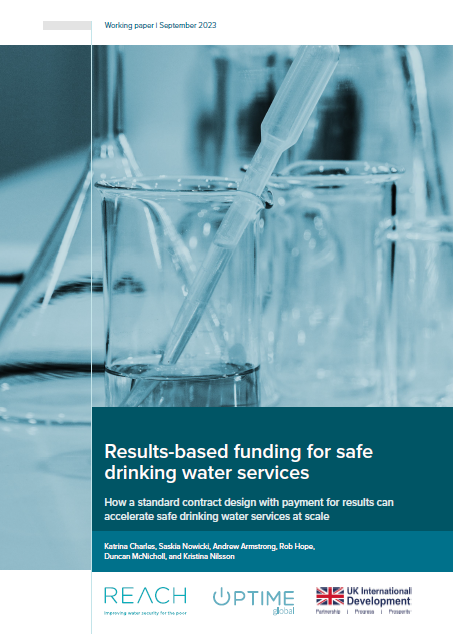Authors: Katrina Charles, Saskia Nowicki, Andrew Armstrong, Rob Hope, Duncan McNicholl, Kristina Nilsson
Rural infrastructure investments have accelerated the installation of decentralised water supply without corresponding investment in the management and oversight of drinking water quality. The assumption that certain types of infrastructure provide safe drinking water has been widely disproven, with faecal and chemical contamination common in piped systems and boreholes. Managing drinking water safety in rural areas is difficult due to the distances involved and the cost implications, with ongoing responsibilities primarily borne by users. As a result, drinking water safety remains unmanaged for much of the global rural population, which coincides with the majority of people living in extreme poverty.
Uptime and partners have demonstrated the ability of professional models to improve reliability of water services in rural environments, with results-based funding supporting sustainability and expansion of the services. Recognising that water safety management activities are critical, this working paper presents an approach that advances contracts for results-based funding to incentivise delivery of safe drinking water services. Standardised metrics for water quality, volume, and revenue are proposed within a framework for protected and reliable drinking water services.

